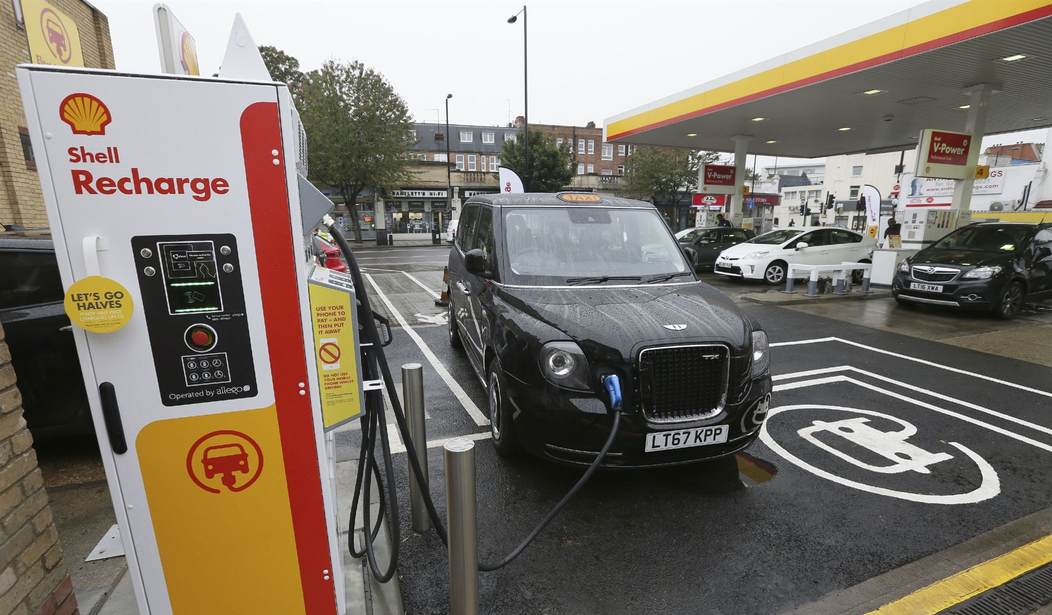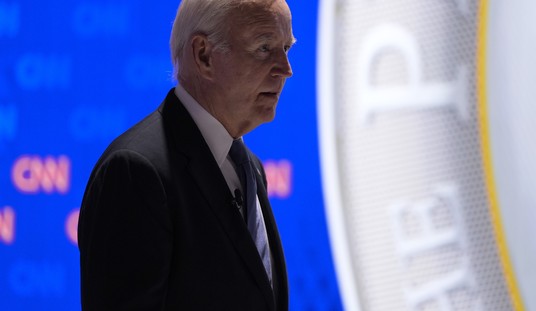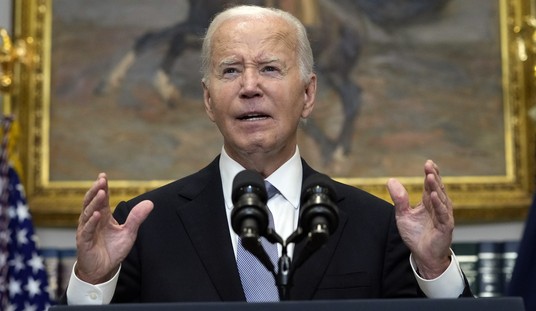For a government-mandated, bet-the-farm sure thing, our purely electric vehicle future sure has been nothing but an ongoing litany of bad news. I, for one, sure have been fascinated watching - and documenting - as the whole grifting Green, not-ready-for-prime-time scheme falls apart in real-time.
So here I am with today's round-up of sobering reality checks on what happens when climate cult fever dreams meet a free marketplace.
In yet another blow to the already reeling German economy - again, thank you, Greens - Volkswagen has once more drawn an EV blank and come up fahrvernügies.
VW says Audi's Brussels factory could close as EV demand drops https://t.co/G2K5khzdRc
— AutoNews Europe (@AutoNewsEurope) July 10, 2024
Well, shoot. What happened there?
...It noted that it is also considering the restructuring or potential shutdown of its Audi plant in Brussels, where it employs 3,000 people, on the back of weak demand for the Audi Q8 e-tron line — a fully electric offering from the brand, launched in 2019.
...If it presses ahead, this would mark Volkswagen’s first factory shutdown in nearly four decades, since the 1988 closure of its plant in Westmoreland County, Pennsylvania.
Analysts have said Audi has been consistently a thorn in VW's side, with delivery issues, etc.
There were rumors the latest VW move was going to be quite a leap from frying pan into the inextinquishable EV fire...
Cars and trucks are the archetypal examples of industrial hardware. And automotive manufacturing historically has been all about finding ways to efficiently engineer and assemble metal, glass, and plastics into road-going vehicles with consumer appeal. But the big change in locomotion from the internal combustion engine to electric motors has shaken everything up. So when Volkswagen, the world’s highest-earning automaker, announced last month that it was going to invest billions of dollars into a joint venture with the start-up electric-vehicle maker Rivian, it was a dramatic sign of how much automaking has changed over the past decade.
...but it all turned out to be a head fake.
Rivian (RIVN.O), opens new tab on Tuesday said it had no plans to produce vehicles with Volkswagen (VOWG_p.DE), opens new tab after a media report said the U.S. electric vehicle maker was in early talks with the German automaker to extend a recent partnership beyond software.
European carmakers are feeling the dragon's breath on their necks, even as they struggle to cope with the lack of anticipated demand they'd all spooled up for.
German carmakers struggled in China and suffered a drop in vehicle sales in the second quarter, but experienced diverging fortunes in the hotly contested electric-vehicle market.
...Competition in the electric-vehicle market has intensified and car makers have been cutting prices to try and gain market share, particularly as production of new cheaper models from Chinese manufacturers have hit the market and begun to gain traction in Europe.
The European Union recently placed additional tariffs on Chinese-made EVs, following a similar move by the U.S. China has yet to respond and executives at European brands fear an escalating trade war could hurt Europe’s industry long-term.
Mercedes-Benz said overall sales of its cars fell 4% on year in the second quarter, with a slump in customer appetite for battery-electric vehicles in some of its biggest markets.
Mercedes had banked on at least 50% of their vehicle sales being electric by 2025. It is growing ever more obvious that there is no way the company is going to come close to meeting that threshold. Ergo, adjustments are being made to scale back plans already in the works while others are being put on hold.
They remain optimistic for sales going forward. They all do.
Ford is bravely rolling out a new Capri in Europe. Je suis, Capri.
Did you see it? The legend is back.
— Ford News Europe (@FordNewsEurope) July 10, 2024
The new all-electric Ford Capri. ⚡️
Discover more 👇https://t.co/JBhlChJ3ku
#FordCapri #TheLegendIsBack #JeSuisCapri #ElectricVehicle #EV pic.twitter.com/aq7fAuzgRy
Snappy.
The problem with demand is, especially in the States, what is practical and affordable for the average consumer. It's now coupled with the fact that the longer EVs are on the road, the more information becomes available for the consumer to digest about them.
There was an interesting piece on Real Clear Energy the other day doing some more math with available figures for EV advocates and their climate cult backers. It's a pretty good read and goes into a wealth of detail on concerns and drawbacks both for owners and the public infrastructure at large.
According to Electrly, the electric vehicle charging manufacturer, it takes an average of 90 kilowatt-hours of electricity to fully charge a Tesla Model Y long range all-wheel-drive vehicle, 83 kWh for the Model Y performance version, and 67 kWh for the standard range Model Y.
Each Tesla uses between 0.24 to 0.30 kWh per mile, or about 4,500 kWh over a year for 15,000 miles of driving. Other electric vehicles use more or less, but within a similar range. At 0.30 kWh per mile, that’s 90 kWh for 300 miles of driving for the typical week.
The average American household without an in-home EV charging station consumes about 30 kWh per day, or about 10,720 kWh over a year’s time. With just one electric vehicle being charged at home, that total increases to about 15,220 kWh. For two-EV households, that total runs up to nearly 20,000 kWh per year (assuming both drivers commute to work). That’s nearly double current electricity usage for such families.
...Two home-charged EVs would eat up nearly half the household’s total electricity usage – and require thousands of dollars to upgrade the house’s electric panel. Today’s 50-kva transformers, which cost about $8,000 each, can power about 60 homes; that number drops closer to 40 if each of those homes houses one electric vehicle, closer to 30 with two EVs using home chargers.
For a city with 120,000 homes, which today may require about 2,000 transformers, the addition of 120,000 home-charged electric vehicles means adding 1,000 transformers, about $8 million. But that’s just the tip of the iceberg, because distributing 50 to 100% more household electricity requires generating 50 to 100% more electricity.
...Ars Technica reports one concern motorists have with buying EVs is the shortfall of public charging stations. The U.S. Department of Energy says that, of the nation’s 64,000 public charging stations, only 10,000 are direct current chargers that can replenish an EV battery is 30 minutes rather than several hours – and that’s if there is no line.
What the EV-promoting journal misses in its excuse-me post is that those fueling up at the nation’s 120,000 gasoline and diesel stations can do so in far less than 30 minutes, usually waiting a maximum 60 seconds to access a free pump.
That piece ends very much as mine always do -
...But mostly, people just want to be free to make their own economic and transportation choices and not have some unelected bureaucrat making those decisions for them.
Bureaucrats and cultists shouldn't be surprised when they try to force something down our throats and it bombs. That doesn't make us either ignorant about knowing what's good for us or the bad guys in the story because we refuse to be led by the nose.
Contrary to the elite's opinion of themselves, they are not the bosses of us.
They need that truism brought home from time to time.







Join the conversation as a VIP Member